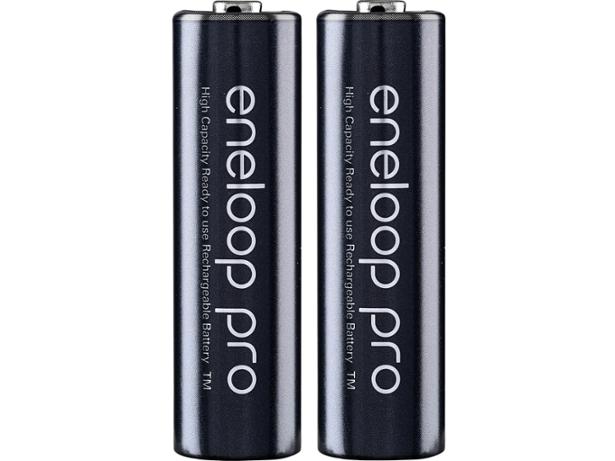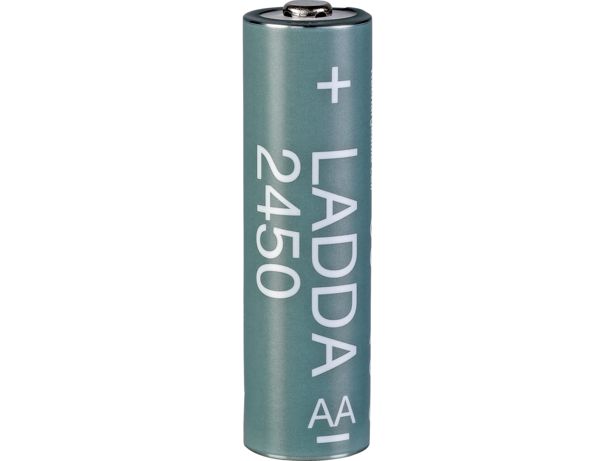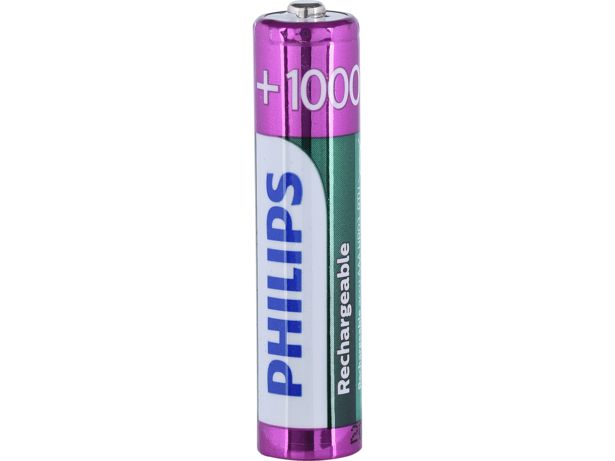Battery chargers - what you need to know

Do you want to buy a new battery charger? Whether it's your first time buying a charger or you're replacing an old one, it’s worth knowing what extra features are worth paying for. Below, we explain what you need to know about battery chargers - including how to get the best from your charger.
A battery charger with lots of features, such as a charge indicator, super-fast charging or the ability to charge 9V batteries, might be tempting as it covers all possibilities. But you’ll pay more for these extras, so it’s worth thinking about whether they’ll be useful to you.
Once you’ve worked out what type of battery charger you want, make sure you buy the best rechargeable batteries to put in it. The best AA rechargeable batteries last nearly eight hours on a single charge and won't leak away their charge between uses. However, the worst AAA rechargeable batteries we've tested lose nearly 20% of their charge if you don't use them for 50 days.
Check our independent rechargeable batteries reviews to find the best batteries for your device.
Types of battery charger
Smart charger
Smart battery chargers, also known as delta-V chargers, monitor the voltage levels in each battery and stop charging (or switch to a low trickle-charge setting) when they’re full. Smart battery chargers are usually the best choice for keeping rechargeable batteries in good shape, as they prevent overcharging, which can reduce battery lifetime.
Trickle chargers
These push a low ‘trickle’ charge through batteries for a long period of time. Some have timers, so they turn off automatically after a set period of time. This won’t necessarily prevent overcharging or undercharging, though. This is because the time will vary depending on the battery’s capacity, chemistry and age, among other factors.
Trickle chargers are useful if your rechargeable batteries aren’t ‘low self-discharge’ models (which have technology to stop them leaking away their charge when not in use). Ideally, the trickle charge is equal to the charge that the battery leaks away naturally, so they’re kept fully topped up - ready for when you want to use them. However, keeping them constantly topped up also increases the likelihood of overcharging.
Other battery chargers
If a battery charger isn't marked as a smart charger or trickle charger, it’s likely to be a more basic model that pumps a constant electrical current through batteries until you unplug it. These models are often much cheaper but it can be hard to tell when batteries are fully charged - and the charger won’t stop charging them when they are. So you risk overcharging, which can cause long-term damage. Excess energy can cause batteries to get hot. However, undercharge them, and they’ll run flat faster.
Battery charger speeds
The type of battery charger that's best for you will depend on how you plan to charge your batteries, and how much you want to spend. Can you plan ahead to recharge your batteries? Or will you need a quick turnaround when they’re flat? Manufacturers claim that the fastest battery chargers can charge in just 15 minutes, but they usually cost more. The slowest are often cheaper, but need to be left overnight. Our rechargeable batteries tests measure how long different brands take to charge.
Super-fast chargers
Battery charging technology is constantly evolving, and many smart chargers are claimed to charge batteries in under an hour. The fastest models should be able to charge in 15 minutes – which is convenient, as you don’t need to think about charging your batteries before you want to use them. They tend to be pricier than other battery chargers, however.
Slower chargers
Manufacturers often state the expected charging time on their battery chargers – for example, both Duracell and Energizer sell a ‘one hour’ charger, among other models. Exactly how long it will take depends on the capacity of your rechargeable batteries. In the same charger, higher-capacity batteries will take longer to charge than lower-capacity ones. Other chargers are designed to be left charging overnight – some have auto shut-off functions after certain time periods to minimise overcharging.

Battery charger features
As you choose your battery charger, you also need to think about:
- How many batteries do you need to charge at once? Battery chargers can fit in between two and eight batteries to charge simultaneously. If you’re likely to want to charge a single battery, check the specifications of the battery charger to see whether it can.
- What battery sizes do you want to charge? Most chargers are compatible with AA and AAA batteries. If you want to charge 9V, C or D-size batteries, check carefully for a model that can.
- Charge indicator Some battery chargers have lights to indicate when batteries are charged. The most advanced have digital displays showing how far through charging the battery is, when it will be fully charged and whether it can still receive a charge (so you know when you need to replace it).
- USB adaptor Want to charge your batteries when you’re in the car? Then you’ll need to look for a charger with adaptors that fit other power supplies other than standard 240V sockets.
If you still use disposable batteries, be aware that our tests have discovered that the worst batteries run flat three hours sooner than the best. Make sure you buy the best - check out our AA and AAA batteries reviews or our pick of the best AA and AAA batteries and buying advice.
Battery charger buying tips
Smart or trickle charger? Should you buy superfast? Do you really need a charge indicator? We asked hundreds of Which? members what is important and useful to them about their battery charger. Read the tips below to help choose the best for you – and avoid purchasing a dud.
The most important factors to consider when buying a new battery charger:
- Indicator to show when the battery is charging or fully charged. This is important to 60% of battery charger owners.
- How many different sizes of batteries it can charge. More than half (51%) found this important.
- Trickle-charge function. Useful especially if your batteries aren’t low self-discharge, and key to 45% of people we surveyed.
- Speed at which the battery charger claims to charge is important to 23% of those we surveyed. Check the tech spec in our rechargeable batteries reviews to compare this between batteries. Bear in mind that higher-capacity batteries take longer to charge.
- As the maximum charge a rechargeable battery can achieve decreases over time, many people thought it was useful to choose a charger that shows you how much capacity remains.
(Based on a survey of 1,346 Which? members)

Save money on rechargeable batteries and battery chargers
Top-of-the-range smart chargers can cost from around £25 to £40. Combined with the cost of the rechargeable batteries (which can be around £12 for a four-pack), getting started can be a small investment. But the cheapest chargers we’ve seen cost less than £10, so you can still use rechargeable batteries on a budget.
Use this as a guide to make sure you don’t pay over the odds.
- Shop online – dedicated battery-selling websites, as well as Amazon, can sell bigger packs or bundles. These include battery chargers and rechargeable batteries together.
- Supermarkets – Asda, Morrisons, Sainsbury’s and Tesco can be a good place to shop for battery chargers from the biggest brands, Duracell and Energizer. Aldi and Lidl sometimes sell their own cheaper versions. Argos, Homebase, Maplin and Robert Dyas also usually stock battery chargers.
If you’re shopping in a supermarket, look out for offers on battery chargers; we’ve seen up to one third off a charger with AA and AAA batteries included in major supermarkets.
For more expert shopping tips, and our pick of the Best Buy recommendations on test, read our guide on the best AA and AAA rechargeable batteries.
Get the best from your battery charger
Don’t mix batteries of different capacities or chemistry
Different capacities of rechargeable batteries (indicated in mAh or milliamp hours, printed on the packaging) shouldn’t be charged together. This is because smaller cells could be overcharged and larger ones not fully charged in the same session, which can damage batteries over time. Batteries with different chemistries - such as nickel-metal hydride (NiMH) or Nickel Cadmium (NiCad) – shouldn't be recharged together either.
Check whether you can charge different brands of rechargeable batteries
Manufacturers often recommend that their batteries are charged best by the same brand's battery chargers. This is because they can adapt how the charger works to suit their batteries. That doesn’t mean you won’t be able to charge batteries from different brands in your charger, though. We tried this out with five battery chargers and found they didn’t have any problems charging generic batteries, but were sometimes slower to charge than with batteries of the same brand as the charger.
Charging alkaline batteries
Some battery chargers are claimed to be able to recharge disposable alkaline batteries. We recommend you don’t bother with these. We tested two (the Deluxe Battery Wizard for alkaline and zinc-carbon batteries, and another battery charger for disposable alkaline batteries) with Energizer alkaline batteries. After two cycles, on average, we found battery capacity had dropped to just 10% of its original, with huge variations. With such unreliable results, they’re not a gadget worth spending money on.
Decided what kind of charger you need? We can tell you which rechargeable batteries charge fastest or hold their charge best between uses for the optimum combination. Take a look at our rechargeable batteries reviews.






















